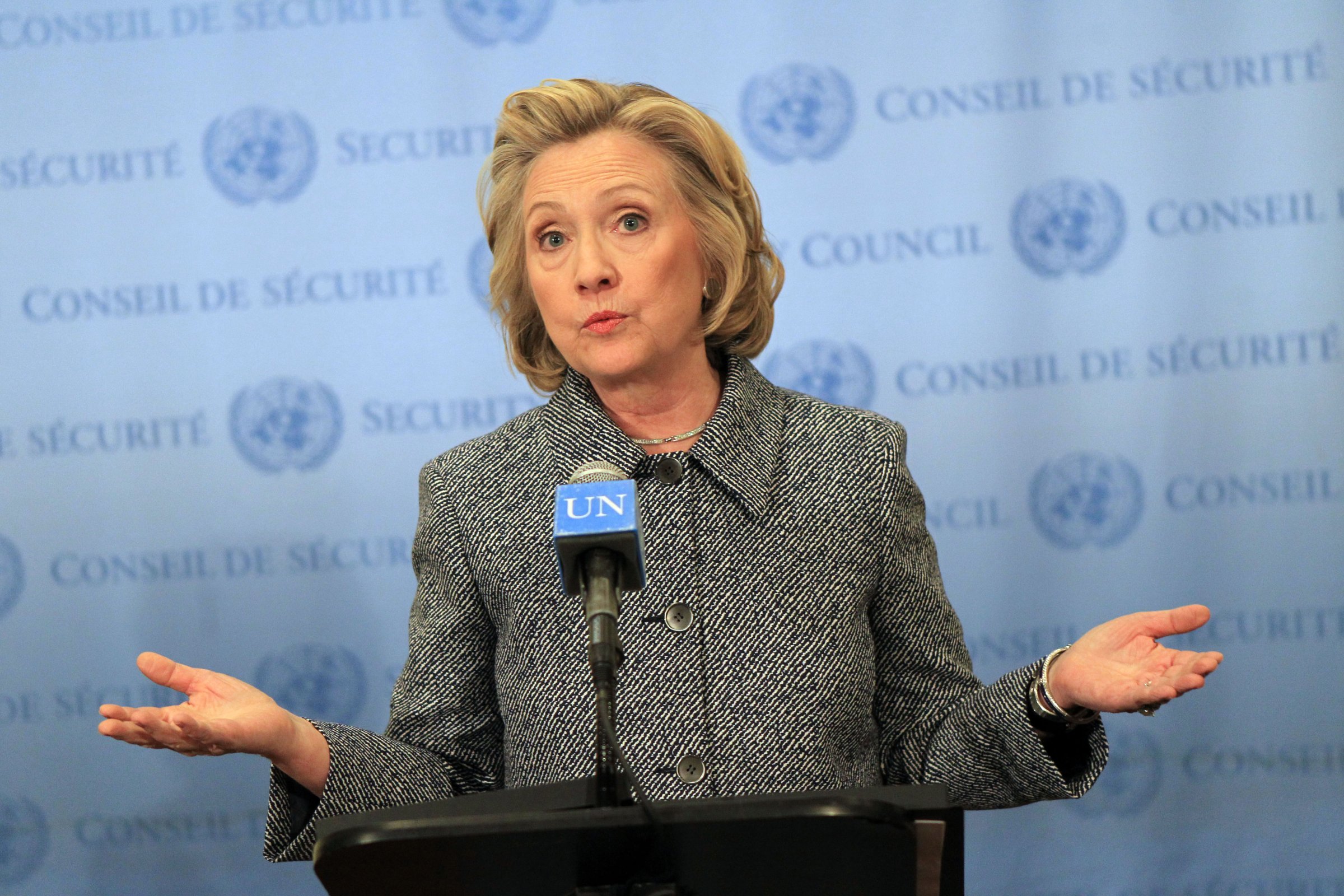
During more than four and a half hours of candid and highly unusual testimony before the House Committee on Oversight and Government Reform Thursday, FBI Director James Comey delivered what will likely remain the definitive word on Hillary Clinton’s use of a private server to send and receive e-mails when she was Secretary of State. But with multiple ongoing civil suits seeking access to those e-mails, it is unlikely to be the last.
Starting at 10 a.m. Thursday, Republicans and Democrats grilled Comey about the unanimous recommendation that he, his FBI investigators and career federal prosecutors made to Attorney General Loretta Lynch on Tuesday not to bring criminal charges against Clinton and her aides in the year-long probe. In response, Comey provided lawmakers with a surprising amount of information about the investigation into potential mishandling of classified information and what it found.
That may have accomplished Comey’s stated goal of providing unprecedented transparency into the investigation because of the “intense public interest” in the matter and brought a formal end to Clinton’s legal jeopardy. But several Freedom of Information Act suits in Washington, D.C., courts will keep the issue in the headlines through the November election. Multiple cases are already seeking access to previously undisclosed e-mails the FBI discovered during the investigation. In two of the cases, the conservative group Judicial Watch is expected to ask to depose Clinton in coming weeks.
State has released tens of thousands of Clinton’s emails in response to FOIA suits from private groups and members of the media over the last two years. Department officials say they will work to recover from the FBI any new documents that have emerged through the investigation. “As we have said for many months, we will work with the FBI to determine the appropriate disposition of potential federal records it has recovered,” said State Department Spokesperson John Kirby.
That will not be a small job. On Tuesday Comey said:
The FBI also discovered several thousand work-related e-mails that were not in the group of 30,000 that were returned by Secretary Clinton to State in 2014. We found those additional e-mails in a variety of ways. Some had been deleted over the years and we found traces of them on devices that supported or were connected to the private e-mail domain. Others we found by reviewing the archived government e-mail accounts of people who had been government employees at the same time as Secretary Clinton, including high-ranking officials at other agencies, people with whom a Secretary of State might naturally correspond. This helped us recover work-related e-mails that were not among the 30,000 produced to State. Still others we recovered from the laborious review of the millions of e-mail fragments dumped into the slack space of the server decommissioned in 2013.
Comey said there was no evidence Clinton or others intentionally deleted those thousands of newly discovered work-related e-mails in an effort to conceal them. On Thursday, he said the FBI had concluded that Clinton set the server up for convenience. “Our best information is she set it up as a matter of convenience,” Comey told the committee members.
Clinton may also face the prospect of being deposed by Judicial Watch in two cases. The group has already deposed her close aides in one case after Judge Emmet Sullivan ruled last spring that doing so was the only way to determine whether the State department had fully complied with the group’s FOIA request. Judicial Watch may also ask to depose Clinton in another case before Judge Royce Lamberth for similar reasons.
During the House hearing Thursday, Republicans asked Comey about the testimony Clinton gave during her three and a half hour interview with the FBI last week. Normally such conversations would not be made public, but Comey said he wanted to provide the public with maximum transparency. Rep. Jim Jordan of Ohio, asked Comey if Clinton knew and approved of her legal team permanently deleting the work e-mails the FBI later recovered. Comey said the FBI had asked those questions during the interview and that Clinton did not know of the deletions and hadn’t approved them.
That won’t necessarily be the end of it. Near the end of the hearing, Committee chairman Jason Chaffetz asked Comey whether the FBI had investigated whether Clinton had intentionally tried to thwart FOIA through her actions. Comey said the FBI had not investigated that question. That is likely because the FBI only investigates crimes and intentionally thwarting FOIA is not one. But it could be relevant to the charge that Clinton violated the Federal Records Act, which can be a criminal misdemeanor. The Supreme Court has set a high bar for successfully prosecuting such violations, however.
More Must-Reads from TIME
- Donald Trump Is TIME's 2024 Person of the Year
- Why We Chose Trump as Person of the Year
- Is Intermittent Fasting Good or Bad for You?
- The 100 Must-Read Books of 2024
- The 20 Best Christmas TV Episodes
- Column: If Optimism Feels Ridiculous Now, Try Hope
- The Future of Climate Action Is Trade Policy
- Merle Bombardieri Is Helping People Make the Baby Decision
Contact us at letters@time.com